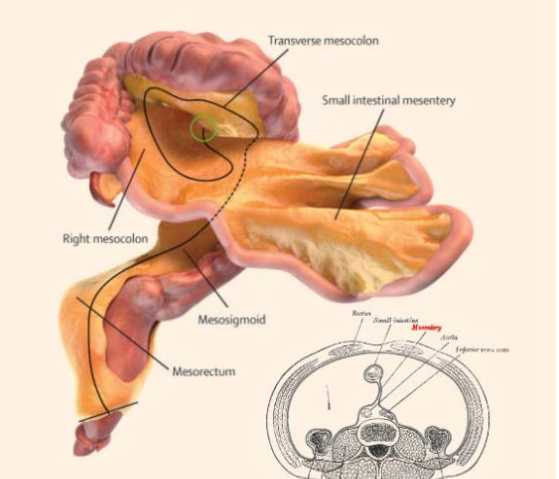
A digital representation of the small and large intestines and associated mesentery. Photo from published research/ J Calvin Coffey / D Peter O’Leary / Henry Vandyke Carter
Just when we thought we knew the entirety of the human anatomy, a new organ has been discovered by scientists at the University Hospital at Limerick in Ireland.
Previously classified simply as a group of fragmented structures in the digestive system, the ‘mesentery’ is now regarded as a continuous single organ of the human body, The Independent reported.
The new organ, which links the intestine to the abdomen, was first recognized by Irish researcher J Calvin Coffey at the same institute in 2012.
“When we approach it like every other organ, we can categorise abdominal disease in terms of this organ,” he described the discovery, adding that it “opens up a whole new area of science.”
Coffey and his team have yet to identify the body part’s exact purpose, but the past few years have shown that it has enough function to be considered an organ.
“Now we have established anatomy and the structure. The next step is the function,” he said. “If you understand the function, you can identify abnormal function, and then you have disease. Put them all together and you have the field of mesenteric science.”
Meanwhile, the new discovery has already made quite an impact on the medical field, as the definitive Gray’s Anatomy textbook for new findings had to be updated to add the latest organ. Medical students and practitioners alike are also learning more about the mesentery.
The research has also been published in The Lancet medical journal.
Aside from the additional knowledge, the latest findings are also vital towards investigating the role that the mesentery might play in abdominal diseases, which could ultimately lead to new treatments.
Generally, humans have five vital organs—the heart, brain, liver, lungs and kidneys—but there are 74 others that play a role in keeping us healthy, which now include the mesentery.
The mesentery was reportedly described by Italian polymath Leanardo da Vinci as early as 1508, but has been ignored throughout the centuries, up until now. Khristian Ibarrola